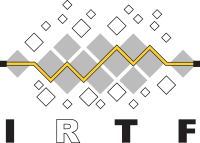The process by which the IETF develops protocol standards is centred around production of documents written primarily in English prose. This facilitates discussion and consensus building, which are essential for the community to function, but the resulting documents suffer from the ambiguity of natural language and the inability to use automated tools to reason about, and validate, the specifications. The use of formal methods, including formal verification and analysis, can make specifications easier to validate against desired goals such as correctness and security and to define these goals. Formal verification in particular also supports automated tooling and reference code generation, but this approach is not yet widely used in the IETF community.
There are technical and non-technical reasons for the slow adoption of formal methods by the Internet standards community. Technical limitations include performance of the analysis tools which don’t always allow to model or verify complex systems, the lack of support for specific kinds of proofs, and formalisms that may not be able to fully describe the complexity of modern protocols or the network environment. And, on the non-technical side, use of formal methods may require the use of unfamiliar protocol description languages and modelling tools, or assume familiarity with concepts that are not widely known by those writing RFCs. Further, there are questions around how such a shift in protocol design methodology would affect the collaborative social process by which consensus is built around the design of protocols.
The objectives of the Usable Formal Methods Research Group are to:
- Bring together the Internet protocol standards community and the academic research community studying formal methods of protocol specifications to share experience and ideas;
- Explore and understand the strengths and limitations of formal methods, including formal verification and analysis, for specification and implementation of algorithms, protocols, and systems specified in the IETF, and to understand how those techniques can be improved to better support such specifications;
- Understand how formal methods can be incorporated into the development of technical standards, and to explore how this may affect the development of technical specifications and the consensus building process;
- Produce resources such as educational material, for example formal analyses for existing IETF protocols, or open source software that can be used by the IETF to apply formal methods for improving technical specifications; and
- Encourage and support experimentation with formal methods in the context of IETF, to gain insight into the feasibility, applicability, and limitations of such methods when applied to protocol development in IETF, and document experiences and results from using formal methods for IETF work.
Examples of the types of formal protocol specification techniques to be considered include, but are not limited to, languages for specifying algorithms, analysis tools for specifying and validating protocols and systems, and tools and techniques to help derive formal models from natural language and semi-structured specifications. The group will consider formal methods, broadly defined, and their application to several targets, including algorithms, network protocols at all layers of the protocol stack (low-level internetworking, routing, and transport protocols; security protocols; cryptographic algorithms; and applications and APIs), and distributed systems that compose these protocols.
The group will work closely with other IRTF research groups, with the IETF standards development community, and with researchers developing formal methods for protocol specification. It will meet regularly co-located with both IETF meetings and with related academic conferences and workshops (e.g., Security Standardization Research (SSR), Computer-Aided Verification (CAV), etc.).
An explicit non-goal is to propose changes to the IETF standards process, the RFC format, or the Internet-draft authoring process. The research group may explore ideas that require such changes, and is uniquely placed to discuss their implications with the IETF community, but the potential incorporation of such ideas into the standards process is a matter for the IETF and is out of scope for this group.
Membership Policy: Open
Chairs
The UFMRG is chaired by Jonathan Hoyland and Stephen Farrell.
Mailing List
The UFMRG mailing list is ufmrg@irtf.org. To subscribe or access the list archives, visit the mailman page.
Datatracker
Documents and meeting materials for the UFMRG can be found on the IETF datatracker.
Timeline
The UFMRG was chartered on 2023-01-27.
